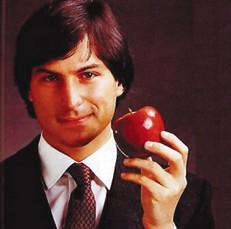Earlier that year Jobs had been hoping to find a buyer for Pixar that would let him merely recoup the $50 million he had put in. By the end of the day the shares he had retained—80% of the company—were worth more than twenty times that, an astonishing $1.2 billion. That was about five times what he’d made when Apple went public in 1980. But Jobs told John Markoff of the New York Times that the money did not mean much to him. “There’s no yacht in my future,” he said. “I’ve never done this for the money.”
那年早些时候,乔布斯还曾经希望把皮克斯卖掉,收回他投资的5000万美元。而股票公开发行第一天结束时,他持有的公司80%的股票价值就已经涨到原来的20多倍,达到惊人的12亿美元。那相当于1980年苹果上市时他获得收益的5倍。但是乔布斯吿诉《纽约时报》的约翰·马尔科夫(JohnMarkoff),钱对他来说意义不大。“我的未来不需要游艇,”他说,“我做这个从来都不是为了钱。”
The successful IPO meant that Pixar would no longer have to be dependent on Disney to finance its movies. That was just the leverage Jobs wanted. “Because we could now fund half the cost of our movies, I could demand half the profits,” he recalled. “But more important, I wanted co-branding. These were to be Pixar as well as Disney movies.”
IPO的成功意味着皮克斯不再需要依靠迪士尼的资助才能完成电影。这正是乔布斯想要的砝
码。“因为我们现在可以承担电影一半的成本了,我就可以要求一半的利润,”他回忆说,“但更重要的是,我想要品牌联合。这些电影将既是皮克斯的,也是迪士尼的。”
Jobs flew down to have lunch with Eisner, who was stunned at his audacity. They had a three-picture deal, and Pixar had made only one. Each side had its own nuclear weapons. After an acrimonious split with Eisner, Katzenberg had left Disney and become a cofounder, with Steven Spielberg and David
Geffen, of DreamWorks SKG. If Eisner didn’t agree to a new deal with Pixar, Jobs s
aid, then Pixar would go to another studio, such as Katzenberg’s, once the three-picture deal was done. In Eisner’s hand was the threat that Disney could, if that happened, make its own sequel

乔布斯飞去跟艾斯纳共进午餐,艾斯纳被他的大胆惊呆了。他们之前签的是三部电影的合同,皮克斯刚刚制作了一部。双方都有自己的撖手锏。当时,卡曾伯格在跟艾斯纳决裂后已经离开了迪士尼,斯蒂芬·斯皮尔伯格(StevenSpielberg)和戴维·格芬(DavidGeffen)—起创立了梦工厂(DreamWorksSKG)。乔布斯说,如果艾斯纳不












